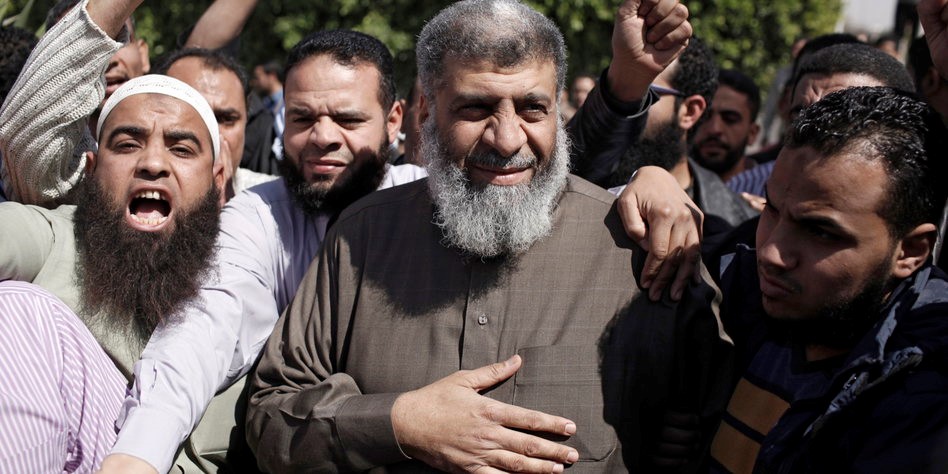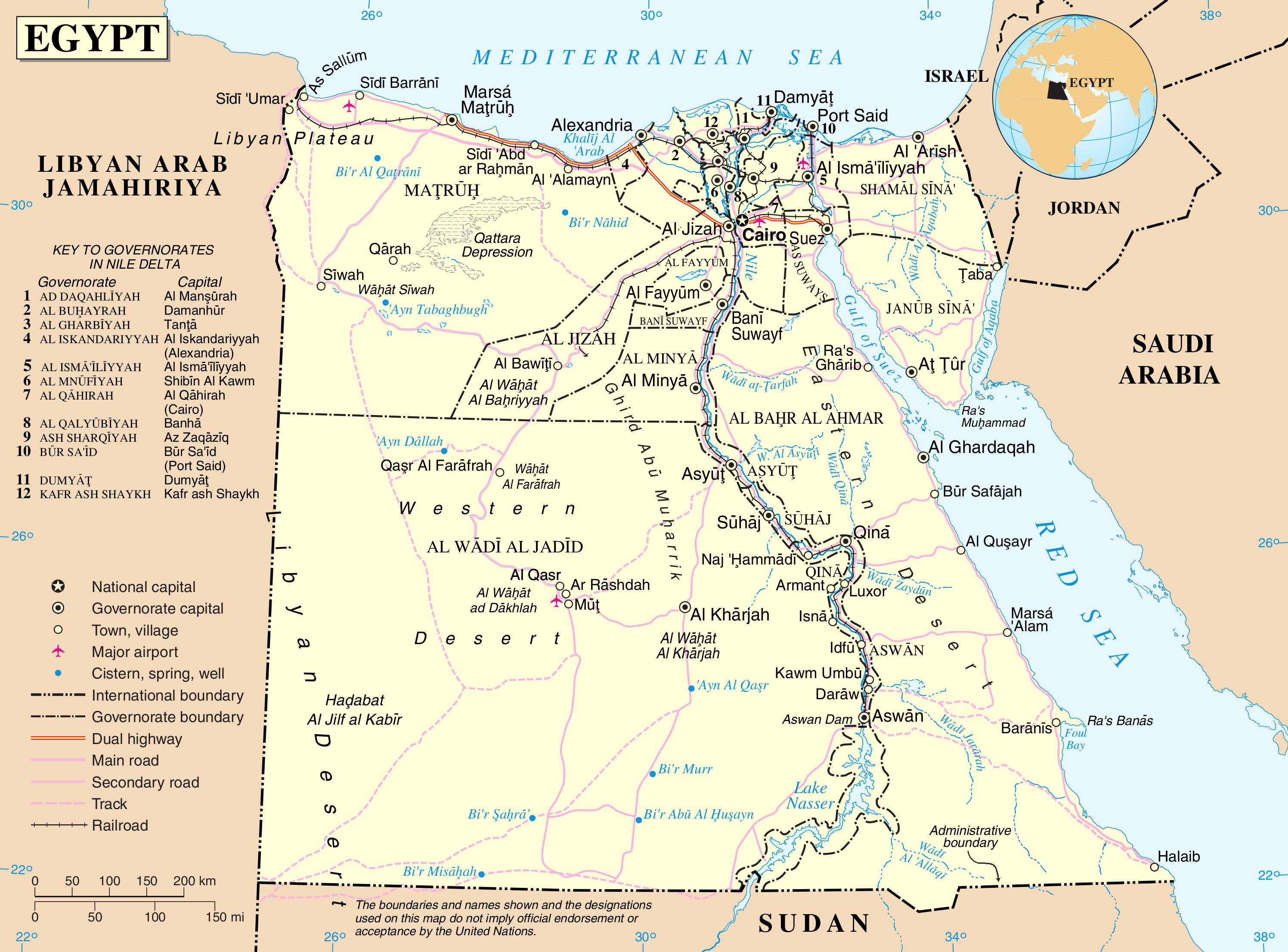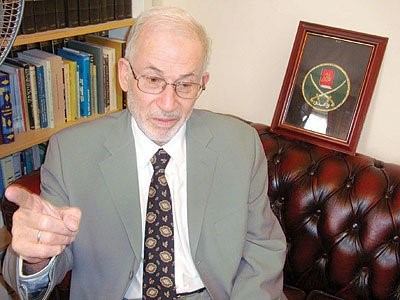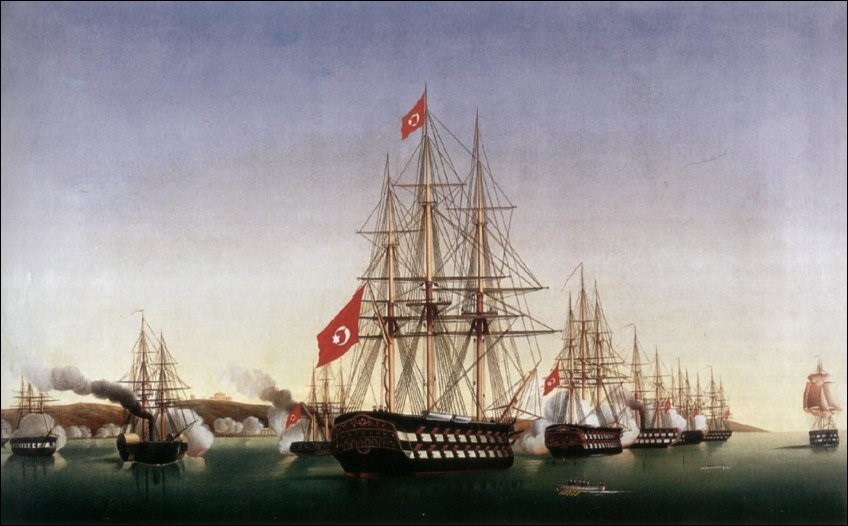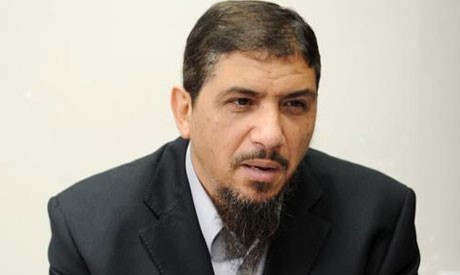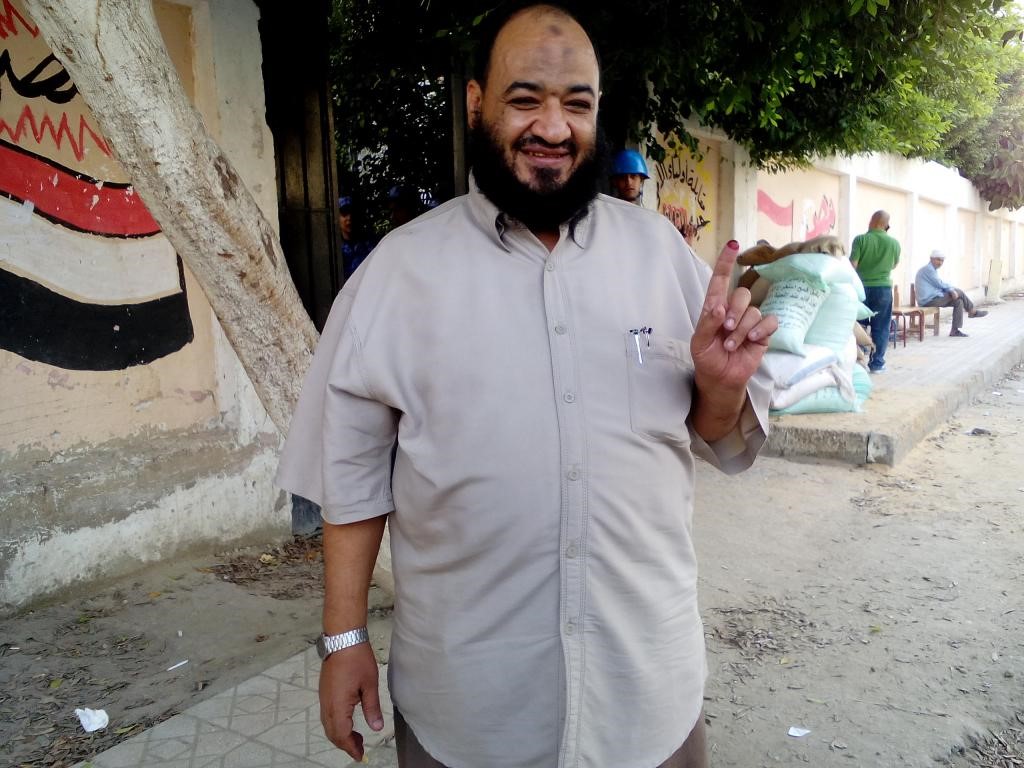Andrew McGregor
November 20, 2012
A raid by Egyptian security forces in a suburb of Cairo on October 24 revealed an unexpected intersection of several important threads in the evolving security situation in the Middle East, including a possible revival of domestic terrorism in Egypt, the attacks on U.S. diplomatic facilities in Benghazi and Cairo, the cross-border shipment of Libyan arms, the growing Islamist role in the Syrian insurgency, the growth of Islamist militancy in the Sinai, the return to arms by political prisoners freed during the Egyptian Revolution, a possible reversal in the declining fortunes of Egypt’s internal security services and a new direction for a beleaguered al-Qaeda leadership.
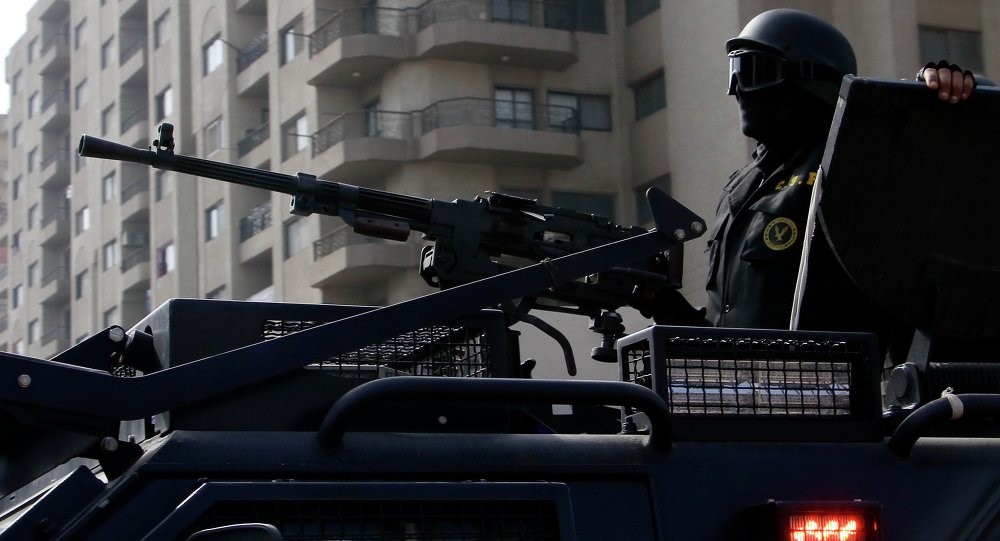 The initial raid on a first-floor gymnasium converted into an armory in the crowded Cairo suburb of Madinat Nasr (Nasr City) has now blossomed into a nation-wide sweep of militants and hidden caches of arms and explosives. With Egypt in the midst of a difficult democratic transition made harder by a deteriorating security situation in the Middle East, details of the terrorist campaign outlined in the charges against members of the Madinat Nasr cell are especially disturbing. The Islamist suspects have been accused of accumulating weapons, planning the assassination of a wide swathe of Egyptian political figures, including newly elected president Muhammad al-Mursi, and of seeking to overthrow Egypt’s elected government.
The initial raid on a first-floor gymnasium converted into an armory in the crowded Cairo suburb of Madinat Nasr (Nasr City) has now blossomed into a nation-wide sweep of militants and hidden caches of arms and explosives. With Egypt in the midst of a difficult democratic transition made harder by a deteriorating security situation in the Middle East, details of the terrorist campaign outlined in the charges against members of the Madinat Nasr cell are especially disturbing. The Islamist suspects have been accused of accumulating weapons, planning the assassination of a wide swathe of Egyptian political figures, including newly elected president Muhammad al-Mursi, and of seeking to overthrow Egypt’s elected government.
The Raid
The investigation into the alleged terrorist cell began with the search of a car belonging to suspected jihadis Bassam al-Sayyid Ibrahim, an escapee from Wadi al-Natrun prison, and his brother Haytham. After a hand grenade, explosives and fuses were seized from the vehicle, interrogations led to the raid in Madinat Nasr (al-Hayat, October 31, 2012). The raided property in a 15-storey residential building was allegedly rented by Karim Isam Ahmad Azzazi, who carried out various work at the property, including the installation of an iron door (al-Wafd [Cairo], October 28, 2012). Karim Isam detonated an explosive device during the raid, killing himself and causing enough structural damage there are fears the building may collapse. Witnesses described seeing a number of men fleeing from the building, one of whom was killed by police (al-Akhbar [Cairo], October 26, 2012). Those detained in the raid insist they were only smuggling arms from Libya to Syria and had no intention of carrying out terrorist operations in Egypt. Police believe that some of the suspects fled from Libya after the attack on the U.S. consulate in Benghazi (al-Tahrir [Cairo], October 29, 2012).
Karim Ahmad is alleged to be the author of a handwritten document found in the raid entitled “The Conquest of Egypt.” The work is reported to provide a detailed plan for the establishment of an Egyptian Caliphate through a campaign involving the assassination of leading Egyptians, including the president and the newly appointed Coptic pope, a wave of bombings (especially in places where Coptic Christians are known to gather), attacks on military posts in Cairo and the Sinai and the takeover of communications networks (al-Arabiya, November 13, 2012). Other materials found in the raid include blueprints of important buildings, records of the movements of significant individuals and plans to strike the U.S. and Israeli embassies (al-Tahrir [Cairo], October 29, 2012; al-Shuruq al-Jadid [Cairo], October 31, 2012; al-Wafd [Cairo], October 29, 2012).
Various reports of the contents of the weapons cache uncovered in Madinat Nasr are so inconsistent as to be useless in determining the threat level posed by the group. These accounts report the seizure of quantities of surface-to-air missiles, anti-tank rockests, bags of TNT, explosive belts, Katyusha rockets, hand grenades, rifles and detonators, often in wildly varying quantities (al-Akhbar [Cairo], October 26, 2012; November 14; al-Arabiya, November 2, 2012); Some Islamists have suggested there were no weapons at all in the raided building, but journalists with a state-controlled Egyptian daily said they witnessed a “large number of heavy and light weapons” being removed from the building (al-Akhbar [Cairo], October 26, 2012).
On October 27, security forces in Alexandria raided a shop in the Burj al-Arab district, seizing 20 sacks of TNT they believed had been stored there by members of the Madinat Nasr cell (Amal al-Ummah [Alexandria], October 28, 2012; al-Akhbar [Cairo], November 8, 2012). Other explosives were reportedly found in a warehouse in the Cairo suburb of al-Sayyida Zaynab and in a car driven by accused members of the Madinat Nasr cell (al-Akhbar [Cairo], November 8, 2012). Four Sinai Bedouin were arrested on October 29 in Giza Governorate in possession of automatic weapons and a large amount of explosives they confessed to obtaining for use against institutions in Cairo and Gaza. Police claimed the four were tied to the Madinat Nasr cell (al-Ahram [Cairo], October 30, 2012; al-Hayat, October 31, 2012).
Many of the Islamist militants now active in Egypt are said by security sources to have fled the Sinai following the intensification of the counter-terrorist “Operation Sinai” in September. They have since spread to a number of Egyptian governorates, including the densely populated capital region (Egypt Independent, October 27). Police also suspect that Sinai militants recently arrested while preparing to carry out terrorist attacks on the Red Sea tourist resorts of Sharm al-Shaykh and Dahab may have ties to the Madinat Nasr cell (al-Hayat, October 31, 2012).
The al-Qaeda Connection
With al-Qaeda relegated to the sidelines during the momentous events of the Egyptian Revolution, al-Qaeda leader and veteran Egyptian jihadist Ayman al-Zawahiri has attempted to keep his movement relevant and his name familiar to Egyptians by releasing a long series of video statements entitled “A Message of Hope and Glad Tidings to Our People in Egypt.” In the eleventh and latest release in this series, al-Zawahiri described al-Mursi as a president without authority who was cooperating with the United States in the “War on Terror” while failing to commit to a nation-wide jihad to liberate Palestine. The solution to this problem, according to the al-Qaeda leader, is the initiation of a new revolution that will bring the people of Egypt to Islam. Al-Zawahiri’s chosen instrument for this new phase of revolution is Shaykh Hazim Abu Isma’il, a leading Egyptian Salafist and colleague of the al-Qaeda leader’s brother, Muhammad al-Zawahiri and Aboud al-Zomor, an Islamist leader released during the revolution after nearly three decades of imprisonment for his role in the Sadat assassination:
Shaykh Hazim, his followers, and all loyal people in Egypt should launch a popular campaign of incitement and preaching so as to complete the revolution that has been aborted and the gains of which have been compromised. We urge them to apply the rules of Shari’a and ensure pride, justice, freedom, and dignity for the steadfast mujahideen and Muslim people of Egypt. [1]
Shaykh Hazim, Aboud and Muhammad al-Zawahiri were all observed at the September 12 storming of the U.S. embassy in Cairo, an event for which the Islamists later claimed responsibility. Muhammad al-Zawahiri has also expressed his opinion that the democratic process is un-Islamic as it gives rule to people rather Allah and has stated that he and his Salafist colleagues do not recognize al-Mursi’s authority (al-Masry al-Youm [Cairo], November 12, 2012; Capital Broadcasting Center TV [Cairo], October 4, 2012). Shaykh Hazim was a would-be candidate in the presidential elections earlier this year but his candidacy was eventually rejected by the Electoral Commission on the grounds that his mother had American citizenship, a violation of the rules contained in the Egyptian constitution. The shaykh is a vocal opponent of the Egyptian military’s political influence, though some Egyptian Salafists have withheld their full support of Shaykh Hazim because the shaykh’s father was a leading member of the Muslim Brotherhood and a scholar at Cairo’s al-Azhar Islamic university, the center of Sunni Islamic orthodoxy (Egypt Independent, March 8, 2012).
The Brotherhood’s spokesman, Dr. Mahmud Ghuzlan, said that al-Qaeda’s criticism of al-Mursi and the Muslim Brotherhood was in fact an honor “because it proves the Muslim Brothers’ moderation and [the effectiveness of] its middle-of-the-road approach in confronting extremists” (Amal al-Ummah [Alexandria], September 29, 2012). A leader of the Muslim Brotherhood’s political wing, Azab Mustafa, suggested that al-Zawahiri’s arguments were irrational because al-Qaeda’s jihadist ideology “does not exist in Egypt” (al-Shorfa [Cairo], October 31, 2012).
Dr. Najih Ibrahim, a founder and former leader of the Salafist al-Gama’a al-Islamiya [GI], has warned of a recent and explosive growth in the takfiri tendency in Egypt: “Suddenly I woke up to the fact that the takfiri ideology has spread in an amazing way after the revolution; it has not stopped at considering the liberals, the socialists, and their ilk as infidels, but it has extended to judging as infidel anyone they considered to be so in the past, as if we have not elected a religious president.” The former GI leader further claims that dozens of jihadist cells have been established across Egypt and are awaiting instructions from abroad before carrying out operations in Egypt (al-Hayat, October 27, 2012).
Tarik al-Zomor, a current co-leader of GI who was freed from three decades of imprisonment along with his aforementioned cousin Aboud al-Zomor during the Revolution, has said that he thinks it unlikely jihadi groups will make a comeback in Egypt because the revolution created new political conditions that exclude Islamist violence and that it is now necessary for the GI to help the president in working towards the implementation of Shari’a (Deutsche Presse-Agentur, November 2, 2012; al-Hayat, October 28, 2012). More recently, however, a statement from GI’s political wing has called for the dissolution of the cabinet and the creation of a parallel “revolutionary government” in opposition to the ruling political wing of the Muslim Brotherhood, which the movement accuses of “hijacking the revolution and denying the people its profits” (al-Masry al-Youm, November 19, 2012).
Tarik al-Zomor also insists Interior Ministry claims that the suspects were preparing terrorist strikes within Egypt are fabrications designed to help state security forces regain their hold over Egyptian society and suggests that the men may have been transporting Libyan arms to Syria (DPA, November 2, 2012). Other Egyptian Islamists have echoed these sentiments (Ahram Online, November 1, 2012). However, Interior Minister General Ahmad Jamal al-Din angrily rejected suggestions the case was another police fabrication in the style of the Mubarak-era: “Did [they] expect us to wait until some important locations were bombed? Did they not see the fire which erupted after the explosion inside the apartment of Madinat Nasr while it was being raided?” (al-Akhbar [Cairo], November 8, 2012).
The Interior Ministry
According to police, one of the targets of the Madinat Nasr cell was the Interior Ministry headquarters in Cairo (al-Masry al-Youm, October 30, 2012). The Ministry, for decades the arch-enemy of Egypt’s Islamists in a dirty war fought out in the backstreets of urban housing projects and in blood-spattered interrogation rooms, continues to be viewed by the Islamists as a force working against Egypt’s interests despite its near collapse in the wake of the revolution (see Terrorism Monitor, April 7, 2011). Muhammad al-Zawahiri has gone so far as to accuse the Interior Ministry and other security bodies of “adopting the Israeli agenda to separate Sinai from Egypt” (al-Masry al-Youm [Cairo], November 12, 2012).
Following reports that jihadis fleeing Egyptian operations in the Sinai had prepared an assassination list of 300 political figures, there were demands from some quarters that the Ministry restore ex-members of the pre-revolutionary security apparatus who specialized in the investigation of jihadi and takfiri elements (al-Dustur [Cairo], October 29, 2012).
Changes in the structure of the Interior Ministry and its operations made at the behest of the Muslim Brothers are said to have angered a large number of mid-level officers (al-Shuruq al-Jadid [Cairo], November 13, 2012). Police methods are proving resistant to change in post-revolutionary Egypt, with the familiar abuses of the Mubarak-era still prevailing. A recent report from the El Nadeem Center for Rehabilitation of Victims of Violence and Torture documented 88 cases of police torture in the first 100 days of al-Mursi’s presidency and 34 incidents of death at the hands of police. [2] The Minister of the Interior, meanwhile, has warned civil society organizations to beware of false claims of torture and other excesses by policemen (al-Akhbar [Cairo], November 8, 2012). A lawyer for the original eight accused in the Madinat Nasr case maintains that they have all suffered torture during their interrogations and several of the suspects told prosecutors they had been tortured after their arrest (al-Shorouk [Cairo], November 3, 2012; al-Hayat, November 4, 2012).
Conclusion
It is a fact borne out by history that revolutions rarely finish where and when they are expected to finish. In Egypt’s case, it could hardly have been foreseen that in such a short time into their rule the most dangerous opposition to Egypt’s Muslim Brotherhood would come from other Egyptian Islamists. In the world of the takfiri extremists, even President al-Mursi can assume the role of an apostate tyrant on the level of Mubarak and Sadat. Of similar importance is the establishment of transnational networks connecting Salafi-Jihadists from Libya to Syria that were unthinkable only two years ago under the combined rule of Qaddafi, Mubarak and Assad.
Have Egyptian police uncovered an Egyptian terrorist cell determined to carry out a wave of violence designed to overthrow the Mursi government? Or have they uncovered a pipeline of arms and fighters running between jihadi groups in Libya and jihadi insurgents in Syria? The Interior Ministry would have reason to prefer the former; establishing an internal danger to the state and its president would go a long way towards preserving the latitude of action and culture of immunity the Ministry’s agents have traditionally enjoyed. With the Ministry in tight control of the information flow concerning the case and key evidence yet to be made public, it is hard to say at the moment which scenario is accurate. What is certain, however, is that whether the Madinat Nasr cell intended to operate within Egypt or not, Islamist militants are organizing within Egypt, many of them at odds with the Muslim Brotherhood government and entirely capable of translating that opposition into violent attacks by exploiting the new free flow of Libyan arms across northeast Africa.
The question of the purpose of the Madinat Nasr group and other armed cells disrupted later is central to determining whether Ayman al-Zawahiri’s calls for a new, armed phase of the Egyptian Revolution to implement the organization’s version of Shari’a and focus Egypt’s military on defeat of the Zionist enemy have a receptive audience among the roughly 1,200 Islamist militants who escaped prison, were released during the revolution or have returned from exile after the fall of Mubarak (al-Hayat, October 27, 2012). There is little question the al-Qaeda leader would like to reinsert himself into the political equation in Egypt, a land where an all-pervasive security regime eventually squashed al-Zawahiri’s EIJ in the 1990s and prevented al-Qaeda infiltration before the Egyptian Revolution brought the collapse of the internal security apparatus and effective border controls. An al-Qaeda inspired or controlled terrorist campaign at this most critical time in Egypt’s difficult political transition would quickly threaten to derail Egypt’s already erratic progress towards democracy and unleash new and unpredictable forces throughout the Middle East.
Notes
1. “As-Sahab media presents a new video of Hope and Glad Tidings to Our People in Egypt,” October 24, 2012.
2. “100 days of Morsi Rule: 100 days of detentions, torture, violent crash on protests and killing outside the law,” El Nadeem Center for Rehabilitation of Victims of Violence and Torture, Cairo, November 13, 2012, https://alnadeem.org/files/100%20days%20of%20Morsi%20rule.pdf
This article first appeared as a Jamestown Foundation “Hot Issue”

